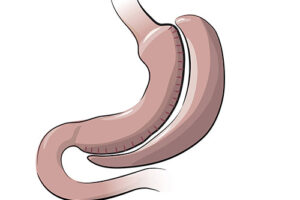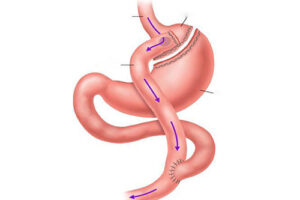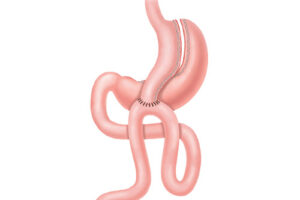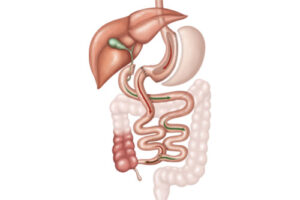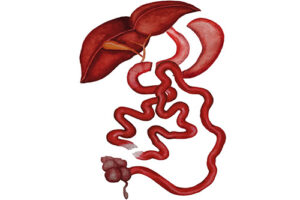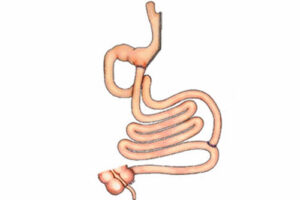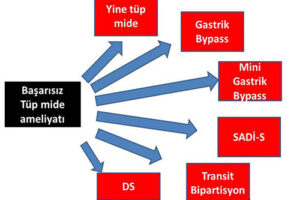While it is ensured that the food taken in sleeve gastrectomy is reduced, the foods that rapidly pass from the stomach to the small intestine stimulate the reflexes in the small intestine. This causes the intestines to work faster. Fast-running intestines provide support for permanent weight loss by reducing the absorption of high-calorie foods.

Leak:
In this surgery, special materials and devices are used while the left side of the stomach is removed. Therefore, a stitch line remains in the stomach. One or more of the stitches may not hold from this suture line after the operation. This is called a fugitive. In short, it can be said that the stitches do not hold and the stitches break.
The causes of these leaks may depend on both the surgeon and the patient. Surgery related reasons are the surgical technique, the materials used and the experience of the surgeon. The reasons belonging to the patient mostly depend on the burden of obesity. In other words, the more weight the patient is, the higher the risk of leakage. Because obesity itself can lead to weakening of the immune system. On the other hand, surgical trauma may cause the wound to heal a little longer and harder. Failure to follow the rules reported to the patient after surgery also creates the risk of leakage.
Leakage risk is around 1%. However, some of the leaks are micro-leaks and most of them heal unnoticed and do not cause any problems. In some of the cases, small abscesses may develop due to these leaks. In these cases, it may be necessary to drain the abscess from the outside (drainage from the wig) and appropriate antibiotic treatment. Even surgery may be required again.
Embolism:
Embolism is usually the presence of a standing clot and it goes elsewhere in the body and clogs the vein somewhere. There is a risk of clots in obese patients, even if they do not have surgery. The risk of embolism that already exists in these patients increases a little more with surgery. However, the risk is considerably reduced by administering blood thinners to the patient before and after the operation, carrying the patient early, using special socks and anti-embolic pump systems in the surgery.
As the weight increases, the risk of embolism increases, but in general, the risk of embolism can be roughly 04% (4 per thousand).

✓ The amount of food is limited.
✓ Faster and fullness are felt. You stay full for a long time.
✓ Weight loss starts from the moment of surgery..
✓ If he is overweight, the patient may lose weight over 50-60% on average.
✓ The digestion and normal absorption of the foods taken are not impaired in the intestine.
✓ Even if it fails, it can be converted to other surgeries such as gastric bypass, duodenal switch.
✓ Gallstones may develop due to rapid weight loss. Normally, the risk rate in the society is 1%, while the risk after sleeve gastrectomy is 2%. Therefore, an operation may be required to remove the gallbladder.
✓ The change made for surgery is a permanent procedure, the stomach cannot be restored.
✓ It may be necessary to use stomach-protective medications for a while after the operation to reduce stomach acid.
✓Reflux may occur.
✓ During this period, our first goal is to reduce our swollen and fatty liver to a healthier level in our normal nutritional process, therefore, we should completely remove fat and sugar from our nutrition table and follow a diet as high as possible in terms of protein, vitamins and minerals.
✓ You should not drink acidic drinks.
✓ You should have a protein-based diet in all your meals.
✓ You should not especially use refined sugar.
✓ You should not smoke.
✓ One week before your surgery, Aspirin and its derivatives Coraspin Alcaseltzer etc. You should not use blood thinners.
✓ You should not take foods containing flour, fried, bulgur, rice, starchy and sugary foods that will instantly increase your insulin.
✓ You should not consume solid food and beverages at the same time.
✓ You should not consume acidic drinks. While planning your diet, where we will progress gradually in the first 45 days after surgery, our first goal is not to lose weight, but not to force the incision line until the wound healing is completed. Weight loss will necessarily occur due to the nature of your surgery.
✓ Clear liquid in the first 10 days
✓ Fluids with consistency of 10 to 15 days
✓ You should eat foods with a mash consistency that you will achieve gradually by thickening for 15 to 30 days.
✓ As of the 1st month, your meal amount will be 150 cc for one meal.
✓ Our body needs the most protein, especially during periods of rapid weight loss. For this reason, you should give priority to protein-containing foods in your meals.
✓ You should start consuming foods that swell when wet, such as bread, pasta, bulgur, rice, after the 3rd month at the earliest.
Prof. Dr. Haluk Recai ÜNALP was born in 1963 in Merzifon. In 1987 he graduated from Ankara GATA Medical Faculty.
Until 1987-1990, Keşan served as the Chief Physician and Health Branch Manager of the 4th Infantry Division, and in 2015 he received the title of Professor.
Until 1987-1990, worked in Keşan as the Chief Physician and Health Branch Manager, and in 2015 he received the title of Professor.
İstanbul İrtibat: +90 (544) 422 32 04
İzmir İrtibat: +90 (544) 422 32 03
Tel: +90 (232) 422 32 02
Eposta: info@halukunalp.com
Lokasyon: Haritaya Gözat

